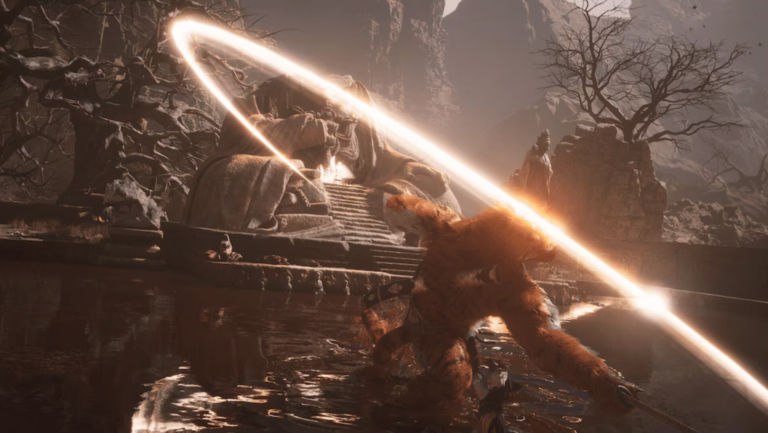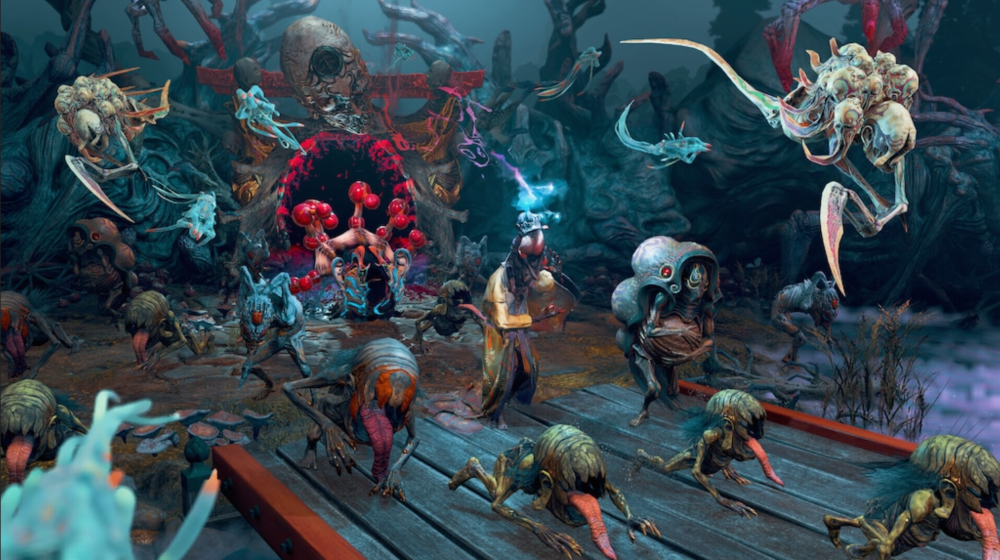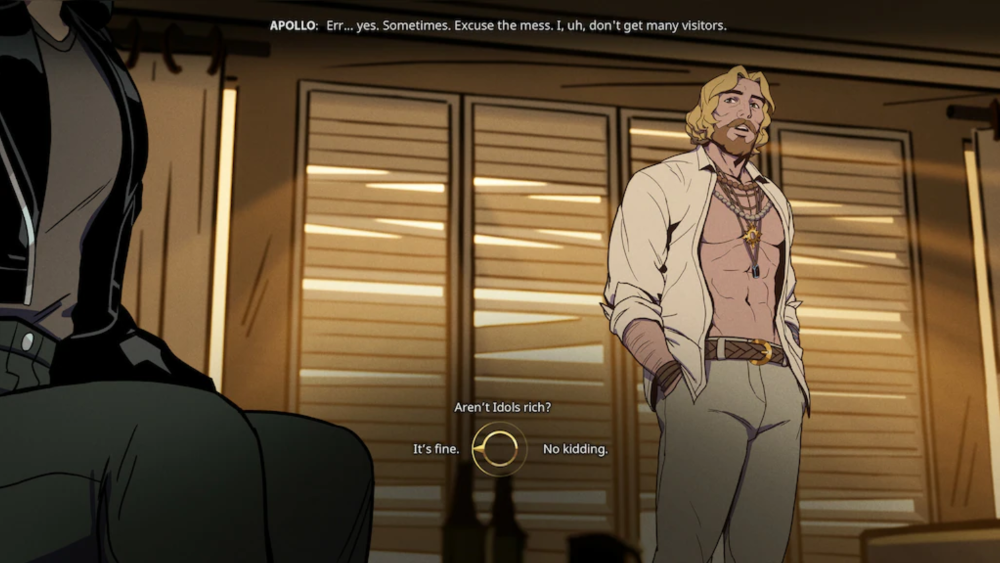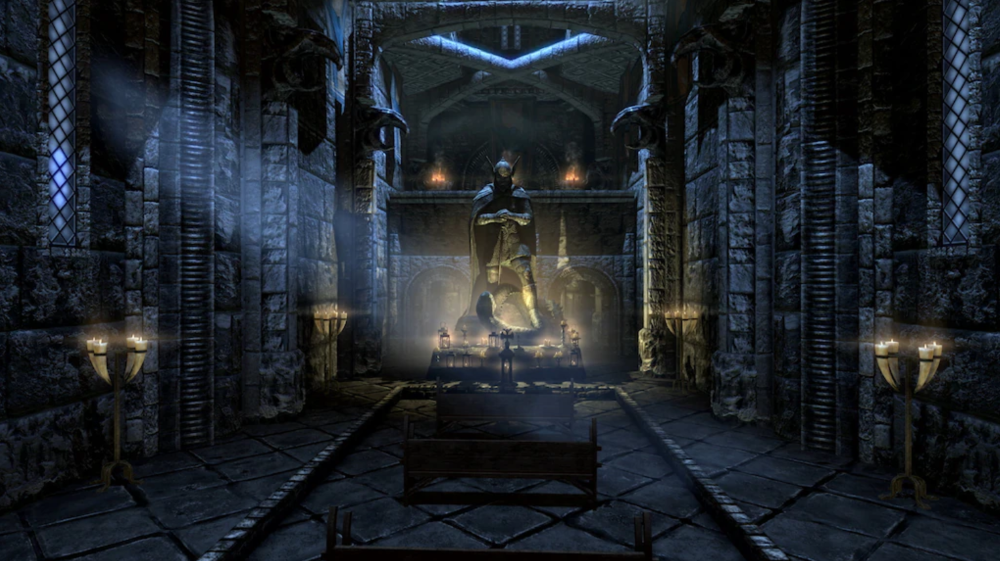Mythologies in games – from Ancient Europe to Middle East and Asia

From paintings and novels, through movies and comic books, to even musicals, mythology has always been an endless source of inspiration. Stories of gods and heroes, hubris and punishment, universal truths and timely morals live on thousands of years after the people they were meant for passed away.
It really shouldn’t be surprising, then, that video games also want in on this pie. They’ve always been quite keen on using myths as a foundation, and over the years we’ve been very lucky to play some truly impressive titles inspired by tales from all over the world.
So on the occasion of Black Myth: Wukong coming out on all major platforms very soon, let’s take a look at some examples, sorted by where the source myths come from.
Titanomachy and other fun words
Of course, the first one up has to be the Greek mythology, for the sheer weight of its contributions to gaming. It inspired all sorts of games. There was Zeus: Master of Olympus letting you build Greek polis all the way back in 2000, dealing with fussy gods, even fussier citizens, and establishing a functional city-state economy.
A few years later, in 2005, the world met Kratos in the original God of War, and helped the ash-stained Spartan carve a bloody path through the pantheon, until there were no more gods left to slay… in Greece, at least – we’ll get back to Kratos soon.
Then in 2006 came Titan Quest, which, unlike the Devil May Cry-adjacent GoW, took cues from the king of hack’n’slash, Diablo, with a bunch of skill trees, enticing loot dropping from the weirdest enemies, and an excuse to slay hosts of mythic beasts. Titan Quest II is coming soon, by the way, but the original got a satisfyingly refreshed Legendary Edition.
Of course we can’t ignore Supergiant Games’ Hades. It was a massive hit, and the roguelike masterpiece starring Hades’ own son Zagreus received a (currently Early Access) sequel, with his younger sister Melinoë in the leading role. There’s also Stray Gods, a mythological musical with a killer cast of voice actors and a story investigating a murder of a muse… through singing. It’s weird, but very intriguing.
Any of these games deserves its own write-up, but it’s time to pay attention to other parts of the world.

A Journey to the East
Let’s leave Europe for a while, and take a look at games inspired by mythologies of East Asian cultures.
Black Myth Wukong, this month’s big release, certainly deserves first place in this section. Based on the 16th century Chinese novel Journey to the West, it stars none other than the Monkey King, Sun Wukong, whose cultural legacy includes even manga classic Dragon Ball. BMW is a rather grim-looking action game, drawing its host of foes and allies from Chinese myth and folklore. You even get to experience Sun’s shapeshifting mastery. which is going to be quite useful both in and out of combat.
If you go back a few years, Enslaved: Odyssey to the West is another take on that timeless classic, taking place in a lush post-apocalyptic land of robots and cybernetics.
If you’d rather interact with Japanese folklore, Capcom’s Kunitsu-Gami: Path of the Goddess is going to be a perfect fit. This mix of action, strategy and… tower defence takes you on a lengthy journey around Mt. Kafuku, purging it of corruption one stage at a time. On the way you’ll face off against hosts of twisted yokai, protect Divine Maiden Yoshiro through an elegant sword dance, and command villagers wearing empowering masks. It’s a gorgeous, engaging, and unique treat for anyone interested in yokai and Shinto’s kagura dances.
It’s isn’t even the first game inspired by myths and folklore in Capcom’s portfolio. Back in 2006 Capcom published Clover Studio’s Ōkami, starring Japanese goddess Amaterasu in wolf form, repainting the world. Capcom tapped into Hindu and Buddhist inspirations as well, when it published CyberConnect2’s Asura’s Wrath in 2012, a game structured like a season of wild action anime, filled with cybernetic gods, powerful magic, and absurdly overpowered combat sequences.

Exploring Europe
Let’s go back to Europe for a spell, because there are still things worth talking about here.
One of these things is, obviously, the Norse mythology, which certainly isn’t rare in video games. Sometimes it’s as simple as adapting the aesthetic, like The Elder Scrolls V: Skyrim does, but sometimes it goes deeper.
Take, for example, the God of War soft-reboot duology. Having slain Greek gods, Kratos took a trip up north to find a new life. Of course, things weren’t peachy, so 2018’s God of War and 2022’s God of War: Ragnarök have the old Spartan and his son Atreus tangle with the Æsir and Vanir, finding friends and foes among each. It’s a very cinematic adventure, with exciting combat, interesting story, and great performances from its cast.
But it’s not all Norse. Slaving myths and folklore also have some interesting representation. The Thaumaturge is a magical investigation in the heart of the early 20th century Warsaw, starring a man who can command spirits inspired mostly by Slavic gods and “demons”. Black Book goes even deeper into the subject, with an in-game codex which can help you learn about creatures and folk tales.

Infinite depths
The games above merely scratch the surface, as we didn’t even tap into the Aztec and Mexican traditions represented in Grim Fandango, Egyptian mythology which inspired chunks of Assassin’s Creed: Origins, or the mix of Celtic and Norse myths forming the foundation of Hellblade: Senua’s Sacrifice. There’s also SMITE, which is all about a huge roster of figures from several mythologies duking it out.
You could spend many, many hours with all these games. Thankfully, you won’t need to spend all that much money, if you visit the special Black Myth Wukong–dedicated space on G2A.COM. Treat yourself to The Monkey King’s latest adventure, and maybe something extra? You’ll even get a special discount code for the road, for use with the G2A app, because you don’t need to be home to enjoy amazing digital deals.